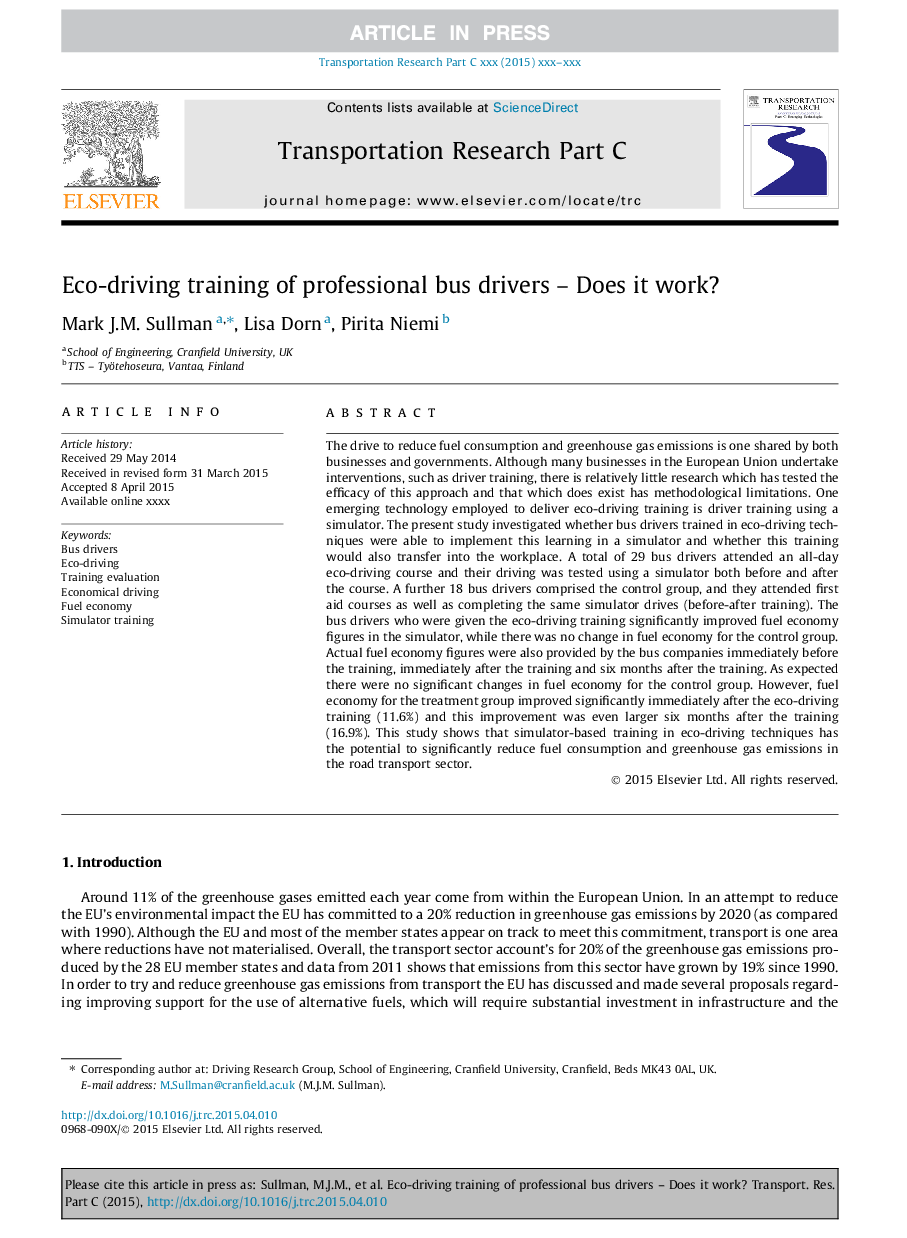| Article ID | Journal | Published Year | Pages | File Type |
|---|---|---|---|---|
| 10359034 | Transportation Research Part C: Emerging Technologies | 2015 | 11 Pages |
Abstract
The drive to reduce fuel consumption and greenhouse gas emissions is one shared by both businesses and governments. Although many businesses in the European Union undertake interventions, such as driver training, there is relatively little research which has tested the efficacy of this approach and that which does exist has methodological limitations. One emerging technology employed to deliver eco-driving training is driver training using a simulator. The present study investigated whether bus drivers trained in eco-driving techniques were able to implement this learning in a simulator and whether this training would also transfer into the workplace. A total of 29 bus drivers attended an all-day eco-driving course and their driving was tested using a simulator both before and after the course. A further 18 bus drivers comprised the control group, and they attended first aid courses as well as completing the same simulator drives (before-after training). The bus drivers who were given the eco-driving training significantly improved fuel economy figures in the simulator, while there was no change in fuel economy for the control group. Actual fuel economy figures were also provided by the bus companies immediately before the training, immediately after the training and six months after the training. As expected there were no significant changes in fuel economy for the control group. However, fuel economy for the treatment group improved significantly immediately after the eco-driving training (11.6%) and this improvement was even larger six months after the training (16.9%). This study shows that simulator-based training in eco-driving techniques has the potential to significantly reduce fuel consumption and greenhouse gas emissions in the road transport sector.
Related Topics
Physical Sciences and Engineering
Computer Science
Computer Science Applications
Authors
Mark J.M. Sullman, Lisa Dorn, Pirita Niemi,
